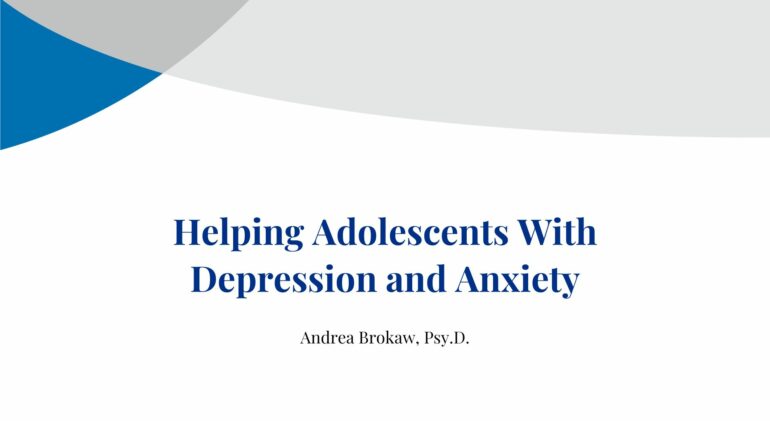Experiencing anxiety and depression are common feelings during adolescence. According to the U.S. Department of Health and Human Services, anxiety disorders occur in approximately 32 percent of adolescents aged 13 to 18, while depression occurs in approximately 13 percent of this age group.
Additionally, during the COVID-19 pandemic, the number of youths experiencing clinical anxiety symptoms nearly doubled and continues to be an area of concern for many. This indicates that a significant number of adolescents are struggling with mental health and could benefit from treatment.
One method for improving an adolescent’s ability to change their relationship with their thoughts, feelings, and behaviors is Acceptance and Commitment Therapy or ACT.
ACT is a therapy model that has two primary elements: acceptance, and commitment. The adolescent works together with their therapist to find methods for integrating unwanted thoughts, feelings, and experiences into their sense of self through acceptance. Then the adolescent commits to engaging in activities that emphasize their values or what is important in their life. It is about making room for thoughts and feelings they are having inside and moving forward with what matters simultaneously.
While at first, this can seem counterintuitive or difficult, there is often relief in making room for feelings. Rather than fighting or avoiding “bad” thoughts or feelings, the adolescent integrates these as part of a meaningful life. As an adolescent takes action toward their values in life, generally their satisfaction and positive feelings will increase, which helps to weather the storm the next time they struggle.
ACT teaches that they do not need to fear feeling anxious or depressed. Instead, those feelings can be part of the experience, there along for the ride, but the adolescent is in the driver’s seat, heading in the direction of living a fulfilling life. Through this new lens, often the adolescent can reconnect with positive aspects of themselves and find more joyful moments in their lives.

